For some elderly Indians the nationwide lockdown is a battle for survival
Elderly facing higher health risks, challenges of social isolation and loss of income
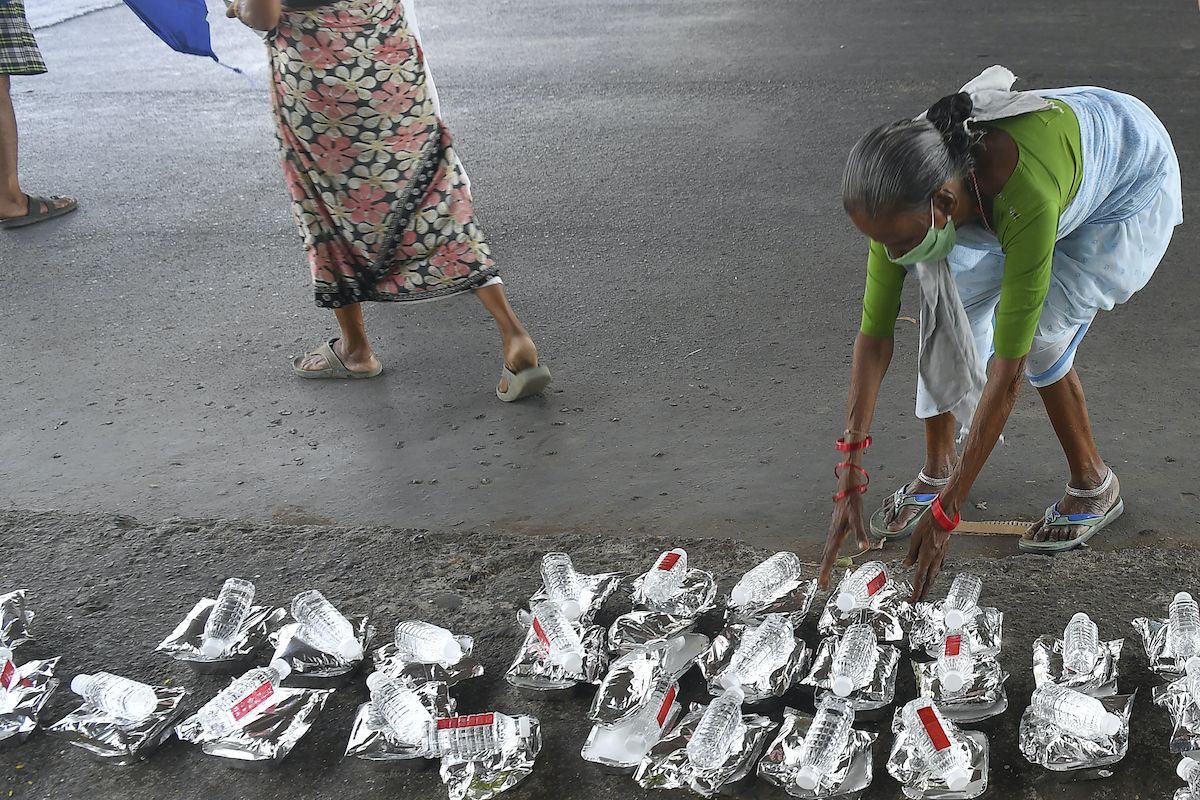
Inder Kumar is old and has a stoop but each day he collects garbage from apartments in the Indian capital of Delhi despite the threat of contracting the new coronavirus.
Tulsi Devi is pushing 60 but works from sun up to sun down washing utensils or cleaning homes in the city which is the third worst urban area hit by the virus in India.
The elderly are acutely vulnerable to COVID-19 and have been advised to stay indoors, but many elderly Indians like Kumar and Devi are daily wage-earners. With no social benefits from the government or family support, they cannot afford not to work lest they starve.
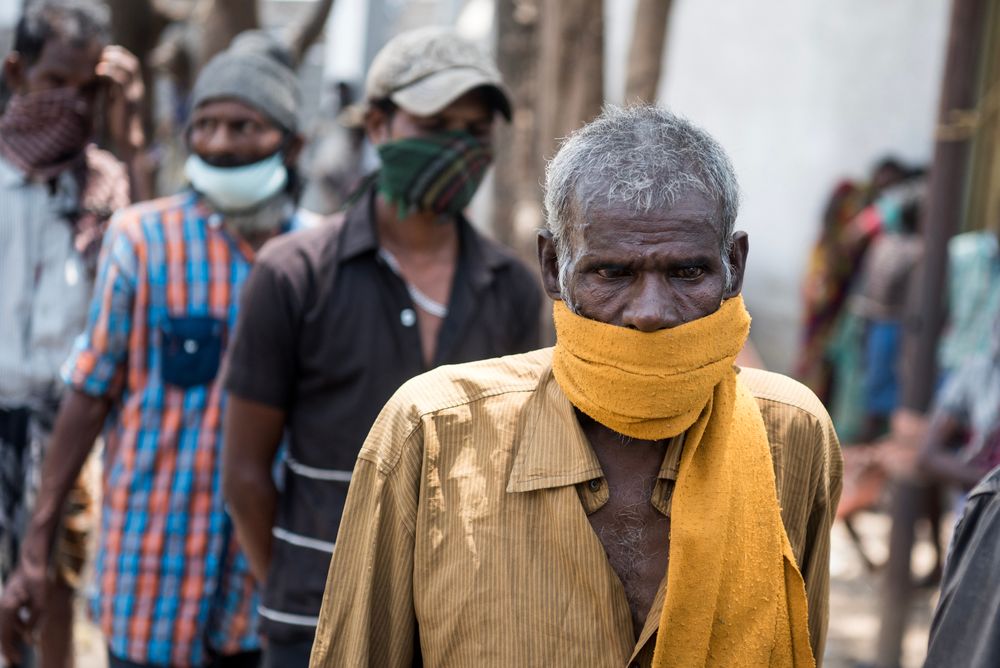
Homeless and unemployed people stand in queue to receive food from volunteers in the Indian city of Mumbai during the nationwide lockdown April 29. (shutterstock.com photo)
Homeless and unemployed people stand in queue to receive food from volunteers in the Indian city of Mumbai during the nationwide lockdown April 29. (shutterstock.com photo)
As of July 8, the virus has infected over 743,000 people in India and killed more than 20,000 people. Of that number, Delhi has had more than 102,000 cases and over 3,100 deaths. All this despite a nationwide lockdown put in place March 24 to suppress the spread of the virus.
The chief operating officer of HelpAge India, Rohit Prasad said that the elderly are now facing higher health risks, challenges of social isolation and a battle of survival.
A survey conducted by the NGO reported that 65 percent of India’s elderly have lost their jobs since the lockdown. The elderly in rural areas have suffered more with 60 percent of them losing their jobs while the figure was 40 percent in urban areas, according to the survey.
Durjan Khushwaha is among those senior citizens who lost their job following the pandemic.
The 67-yer-old migrant worker said he used to work in a factory in Delhi’s Tilak Nagar which closed because of the lockdown.
“I am a widower. My son who also used to work in the factory left for our village in Bihar, but I cannot walk that far so I stayed behind,” he said.
Khushwaha now sleeps in a garage.
“I clean the garage owner’s car and do odd jobs for him. I manage to survive on the 1,000 rupees ($13) per month he gives me,” he said.
Khushwaha suffers from diabetes and hypertension. Before the lockdown he used to get free medicine from a dispensary which has since closed; now he can’t afford to buy the drugs he needs.
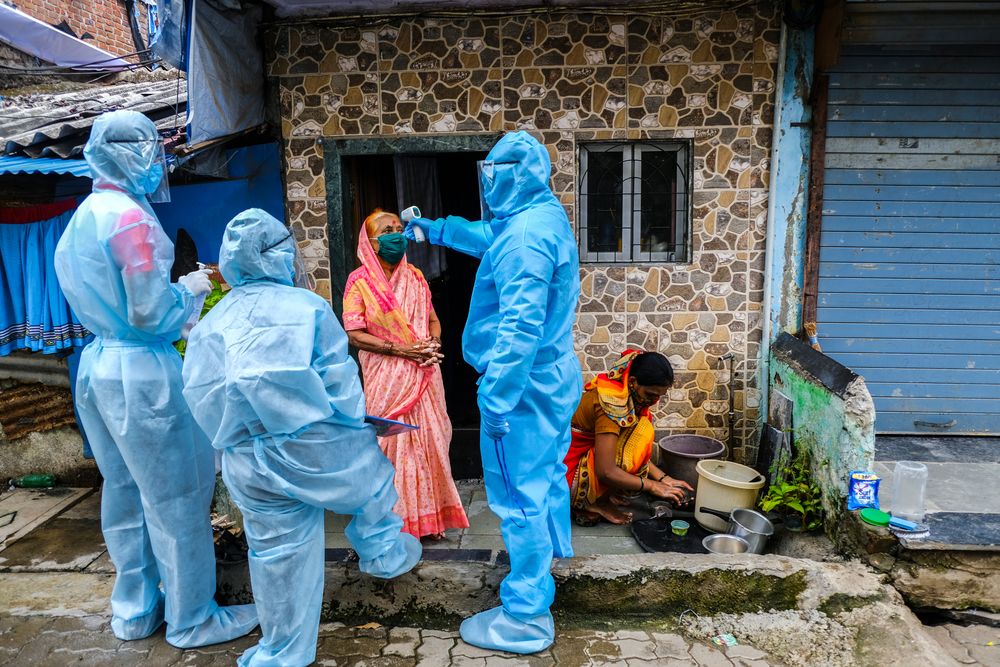
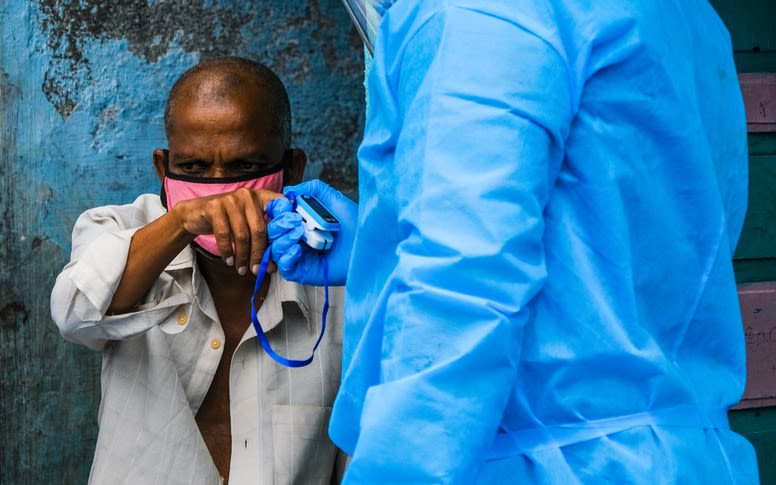
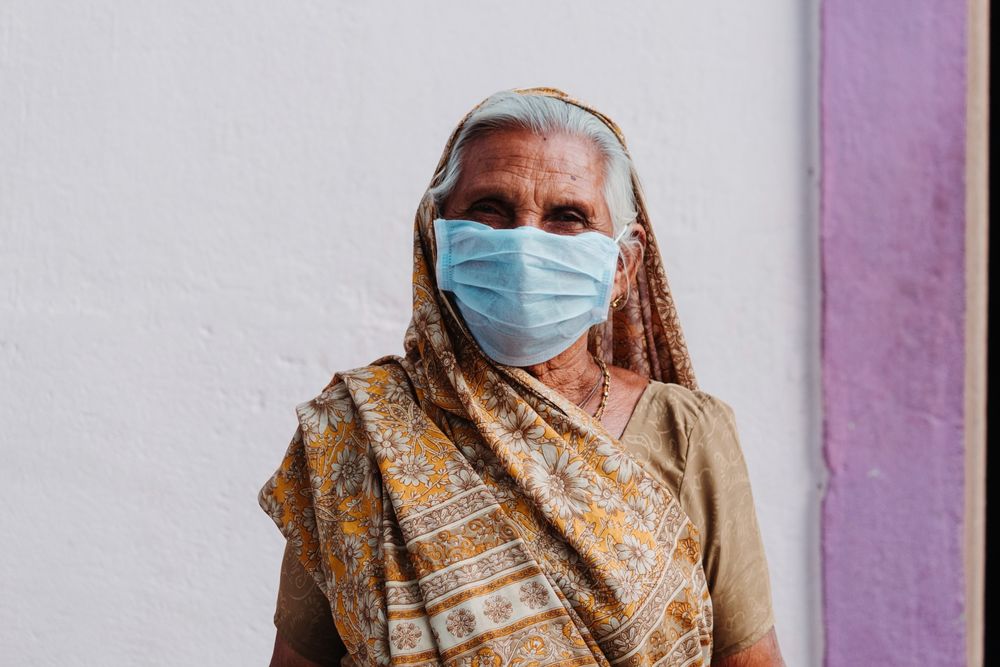
Old Indian woman in saree wearing a facemask to protect herself from the new coronavirus. (shutterstock.com photo)
Old Indian woman in saree wearing a facemask to protect herself from the new coronavirus. (shutterstock.com photo)
Begging
Abandoned by her son, Maya Devi, 69, now begs in an upmarket residential area in Delhi known as INA Colony. She used to sweep and clean the area’s shops for a living but ever since the lockdown the shops have been shuttered.
Devi also has asthma but has exhausted her supply of medicine. She said people have advised her not to go to the hospital because she might contract COVID-19 but she needs to visit a hospital when she gets dangerously breathless. “I will die here without medicine,” she said.
In some urban areas, for those who have a phone to call a helpline and an address for deliveries, police have been arranging to get medicine for senior citizens. Those without such miss out, said Jetendra Loomba, an old age rights activists.
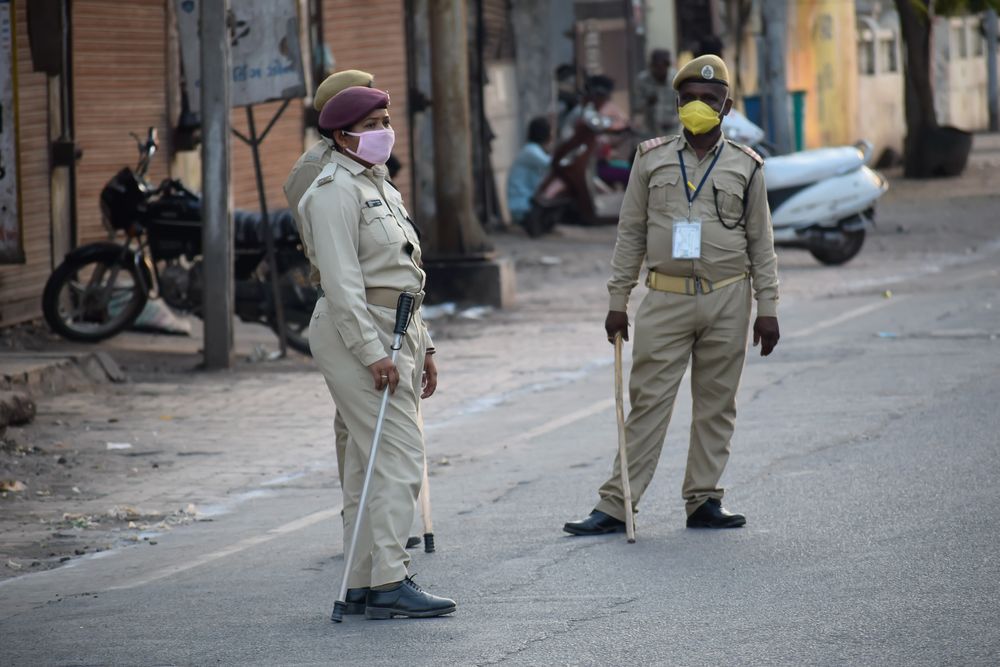
Police on duty stop people from roaming in Bharuch, Gujarat and make them follow lockdown rules to prevent spread of the new coronavirus, April 5. (shutterstock.com photo)
Police on duty stop people from roaming in Bharuch, Gujarat and make them follow lockdown rules to prevent spread of the new coronavirus, April 5. (shutterstock.com photo)
According to the HelpAge India survey, around 42 percent of the elderly reported that their health had worsened during the lockdown.
Another survey conducted by the Agewell Foundation found that 55 percent elderly respondents stated that the lockdown situation is affecting their health conditions adversely.
The foundation’s survey also found that 43 percent of elderly patients said they have avoided regular medical check-ups due to the lockdown and out of fear of the coronavirus.
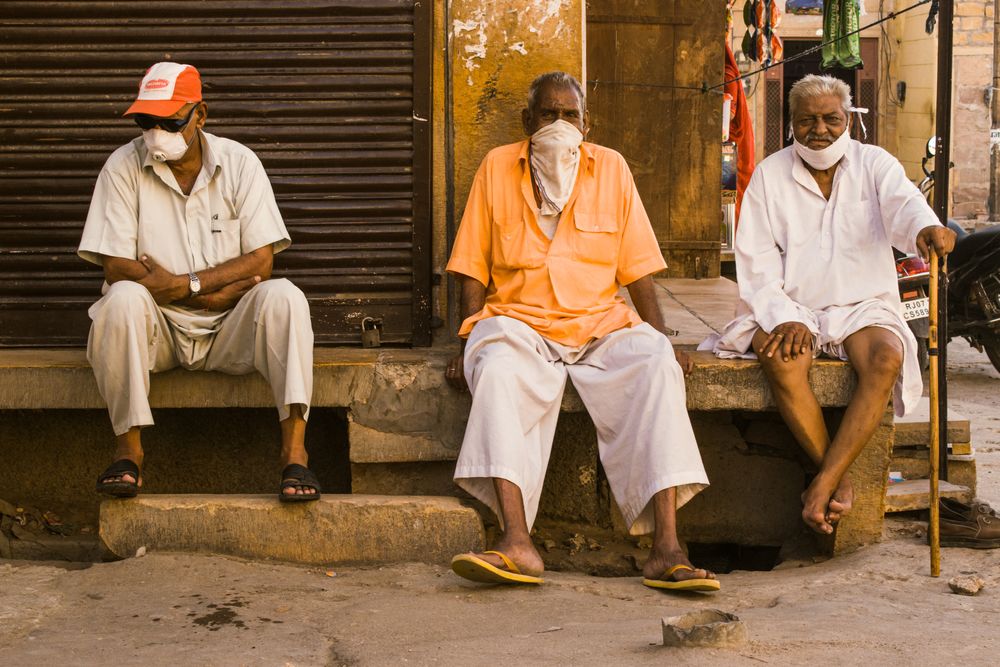
Elderly men maintain social distancing after a loosening of coronavirus lockdown rules in Jaisalmer, Rajasthan, June 2. (shutterstock.com photo)
Elderly men maintain social distancing after a loosening of coronavirus lockdown rules in Jaisalmer, Rajasthan, June 2. (shutterstock.com photo)
The survey found that 64 percent of elderly respondents were facing neglect in their life, while 56 percent said that they are suffering elder abuse from their families and society.
Even among the better off, some elderly have said they have been ostracised in their own homes.
Ratna Puri, 72, and her husband Rajesh Puri, 79, have been kept in their bedroom by their family. Food is served to them inside and their grandchildren are not allowed to mingle with them.
“I realise we are vulnerable but that does not mean we can’t roam around freely even inside our house,” said Puri. “This kind of phobia is uncalled for and is tantamount to abuse,” the retired government official.
As per the most recent census (2011), there were 104 million people in India aged 60 years and above. Of them 53 million were women and 51 million were men.
Published July 9, 2020
© Copyright MMXX LiCAS.news
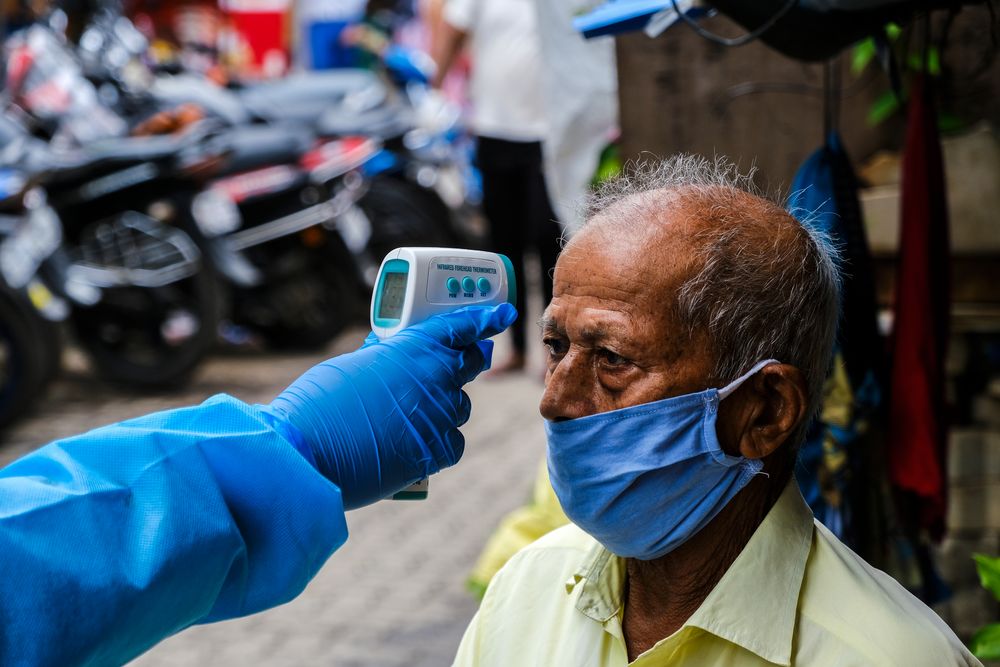
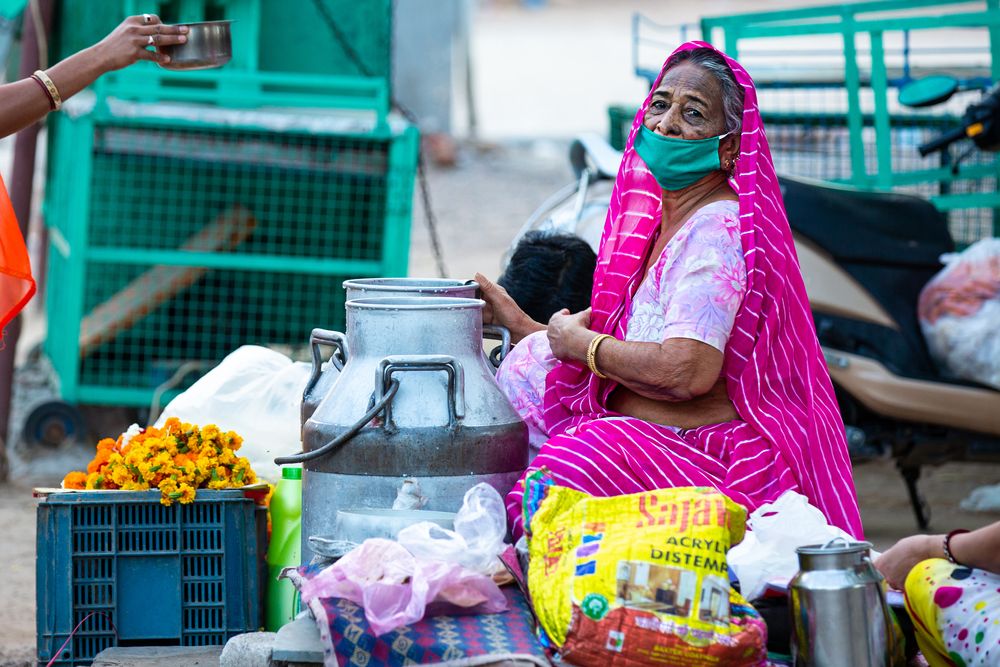
An old woman wearing protective mask selling food on the roadside in Jodhpur during the lockdown, March 30. (shutterstock.com photo)
An old woman wearing protective mask selling food on the roadside in Jodhpur during the lockdown, March 30. (shutterstock.com photo)
